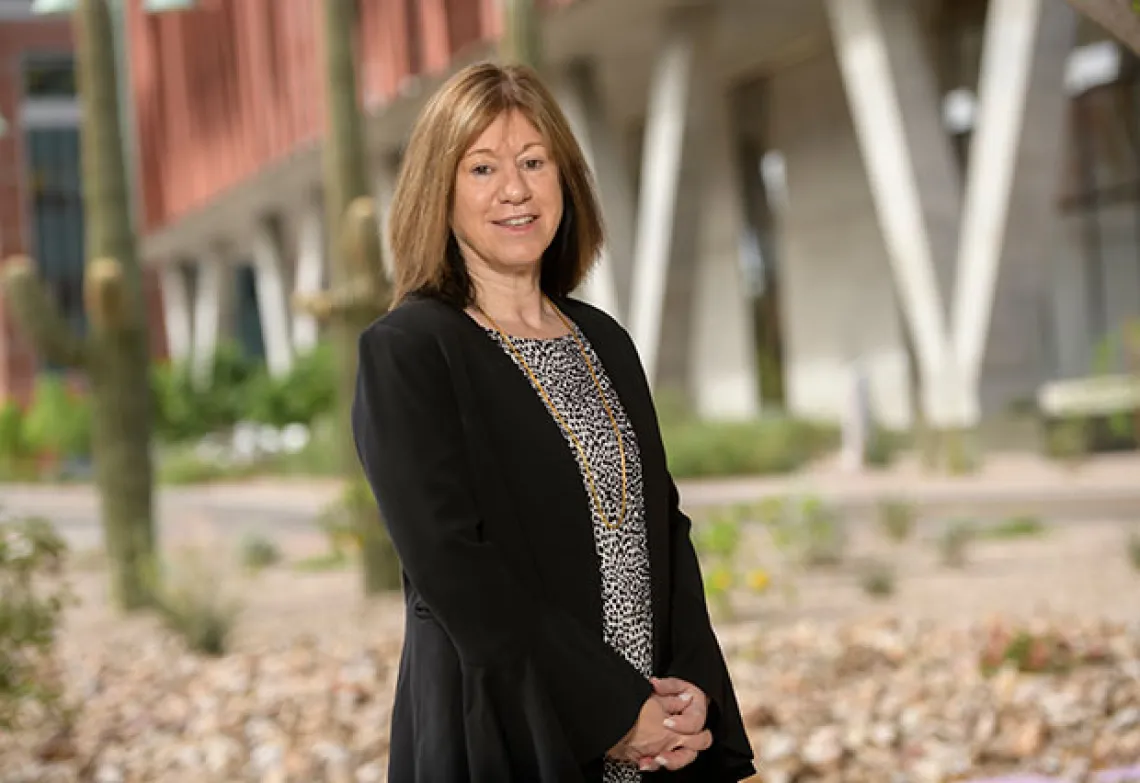Assistant Vice Provost of Global Health Sciences Named AAAS Fellow

The American Association for the Advancement of Science, the world's largest general scientific society and publisher of the Science family of journals, has selected three from the University of Arizona to join the newest class of AAAS Fellows, including Carol Gregorio, PhD, assistant vice provost of global health sciences. The designation is one of the most distinct honors in the scientific community.
Dr. Gregorio is being honored for her internationally recognized contributions toward understanding heart and skeletal muscle structure, function and disease.
"It's an honor to be internationally recognized," Gregorio said.
Dr. Gregorio earned her bachelor's and master's degrees from SUNY Buffalo and her doctorate from Roswell Park Cancer Institute in New York. She did her postdoctoral research at the Scripps Research Institute in La Jolla, California. She joined the UArizona faculty in 1996.
In addition to her role as assistant vice provost for Global Health Sciences, she also heads the Department of Cellular and Molecular Medicine and serves as co-director of Sarver Heart Center, director of the Molecular Cardiovascular Research Program, professor of cellular and molecular medicine, and is a BIO5 Institute member. Dr. Gregorio is also the Czarina M. and Humberto S. Lopez Endowed Chair for Excellence in Cardiovascular Research.
Gregorio's research focuses on identifying the components and molecular mechanisms regulating contractile proteins in cardiac and skeletal muscle during normal development and disease. By studying the effects of human mutations in contractile proteins – those responsible for allowing the heart to beat – her laboratory can decipher how the protein normally functions in health and development. These data are important for designing therapeutics. The research excites Gregorio because it is a path to be able to predict heart disease before it happens.
Gregorio said she loves the beauty of her science: "Muscles work by sliding against each other – their structure is highly regular. The same mechanisms that cause a heart to contract, cause cells to move during processes such as cancer metastasis, but because striated muscle is so beautifully aligned you can see and watch muscle filaments move, which would be impossible if it wasn't so well organized."
Gregorio is one of three UArizona AAAS Fellows selected this year. The new UArizona fellows are:
- A. Elizabeth "Betsy" Arnold, professor of plant sciences
- Carol Gregorio, professor and head of the Department of Cellular and Molecular Medicine
- Cecile McKee, professor of linguistics
Excerpt originally published here. Read the full UA News story.
Want to learn about University of Arizona Health Sciences Global and Online and how it is reshaping the future of global health care education, research and practice by advancing UArizona Health Sciences programs in innovative and dynamic ways?

